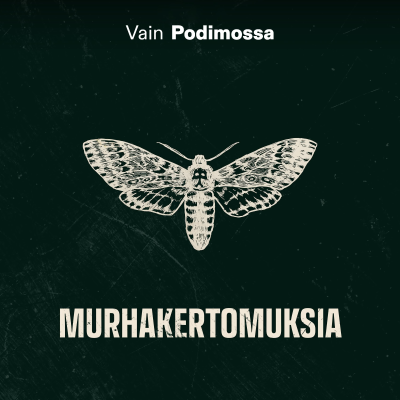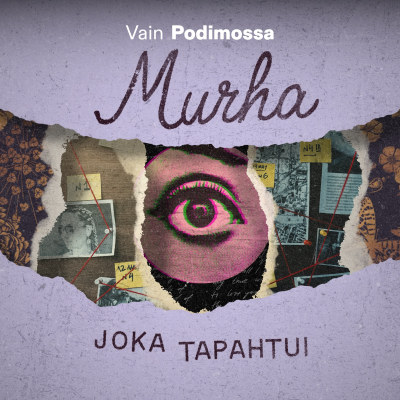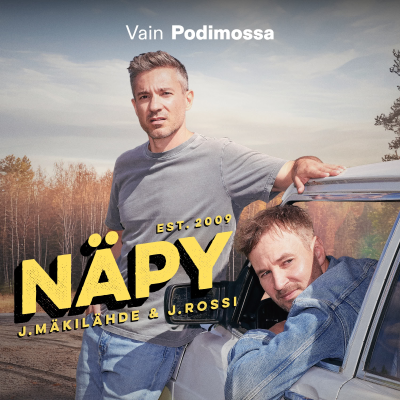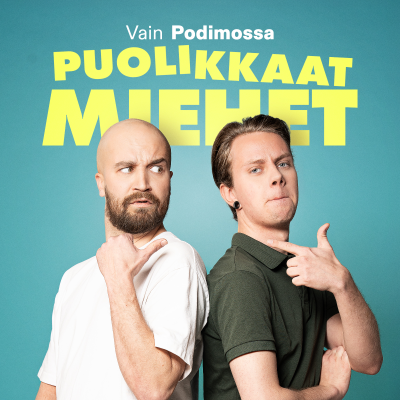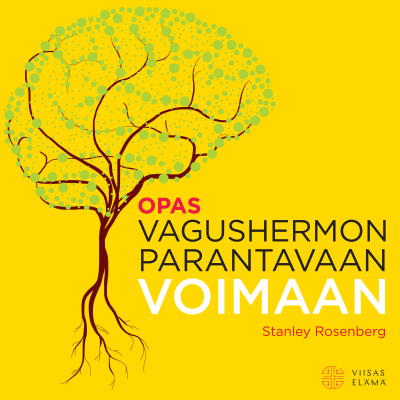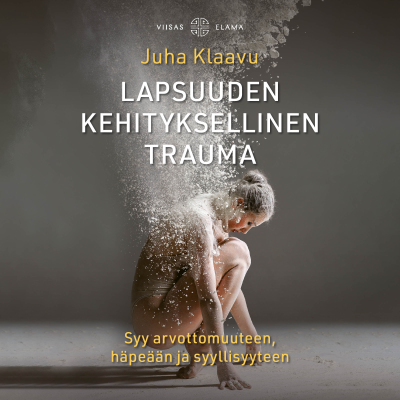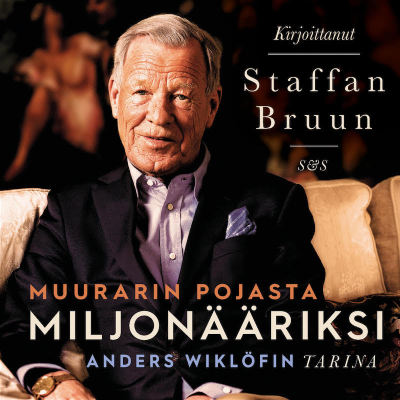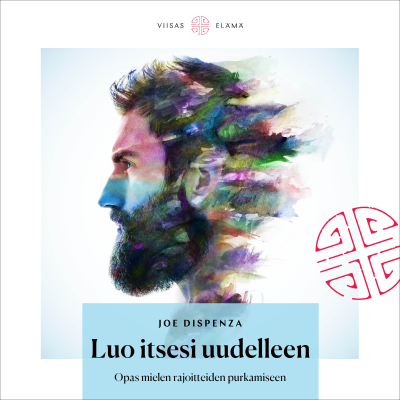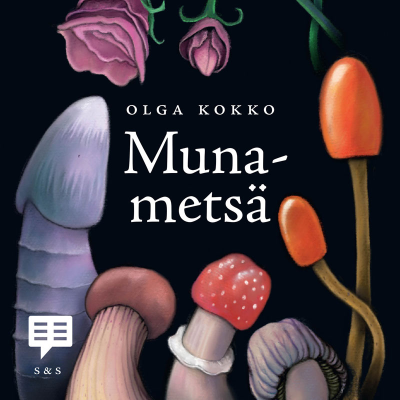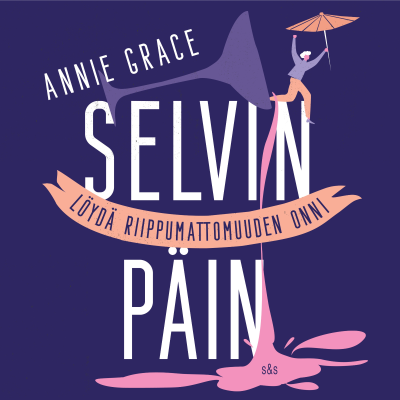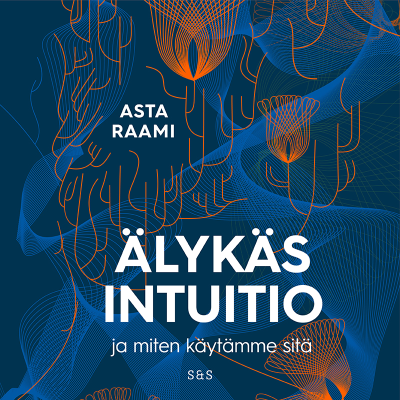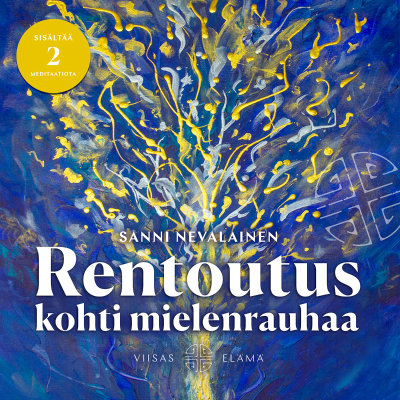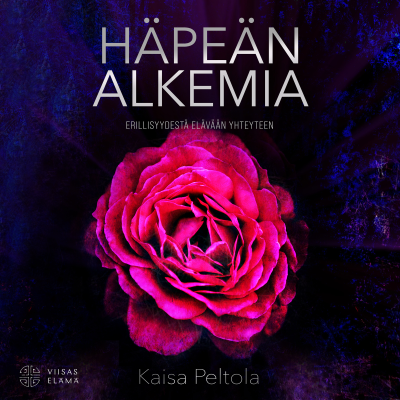
Barbarians at the Gate
englanti
Henkilökohtaiset tarinat
Rajoitettu tarjous
2 kuukautta hintaan 1 €
Sitten 7,99 € / kuukausiPeru milloin tahansa.
- Podimon podcastit
- Lataa offline-käyttöön
Lisää Barbarians at the Gate
A semi-serious deep dive into Chinese history and culture broadcast from Beijing and hosted by Jeremiah Jenne and David Moser.
Kaikki jaksot
108 jaksotBarbarians at the Gate x By Their Own Compass: Emily Hahn's Shanghai
Welcome to a special episode of Barbarians at the Gate. David and Jeremiah are off this week preparing for Chinese New Year, but as a special gift to our listeners, we are cross-posting this bonus episode about the life and China travels of the American writer Emily "Mickey" Hahn. This episode is from By Their Own Compass, a podcast looking at historical travelers and past journeys co-hosted by Jeremiah with travel expert Sarah Keenlyside. Emily Hahn partied with poets (and her pet gibbon) at Shanghai soirees. Wrote biographies while dodging bombs in wartime Chongqing, and did her best to keep herself and her family alive in Japanese-occupied Hong Kong. Along the way, she became famous (some might add “notorious”) for her affairs, including with Chinese writer Sinmay Zau (Shao Xunmei 邵洵美) and the head of British intelligence in Hong Kong, Charles Boxer. Mickey lived through some of China’s most tumultuous moments. While many foreigners experienced these events, Mickey gave her readers an unvarnished look at what was happening, with a style all her own. We hope you enjoy this special bonus episode. Follow By Their Own Compass at bytheirowncompass.com [http://www.bytheirowncompass.com] or search for By Their Own Compass on Apple Podcasts, Spotify, or where you get your podcasts. Links: Books referenced in the episode * China to Me [https://www.amazon.com/China-Me-Autobiography-Emily-Hahn/dp/1497638267] by Emily Hahn * Nobody Said Not To Go [https://www.amazon.com/Nobody-Said-Not-Go-Adventures/dp/0571199658] by Ken Cuthbertson (biography of Emily Hahn) * I Wonder as I Wander: An Autobiographical Journey [https://www.amazon.com/Wonder-Wander-Autobiographical-Journey-American/dp/0809015501] by Langston Hughes * The Soong Sisters [https://www.amazon.com/Soong-Sisters-Emily-Hahn/dp/149764870Xhttps://www.amazon.com/Soong-Sisters-Emily-Hahn/dp/149764870X] by Emily Hahn Tours & Resources: * Historic Shanghai [https://historicshanghai.substack.com/]- walking tours (Patrick Cranley and Tina Kanagarathnam) Further Reading: * Her Lotus Year: China, the Roaring Twenties, and the Making of Wallis Simpson [https://www.amazon.com/Her-Lotus-Year-Roaring-Twenties/dp/1250287472] by Paul French * Hong Kong Holiday [https://www.amazon.com/Hong-Kong-Holiday-Emily-Hahn-ebook/dp/B00J90BZ7E] by Emily Hahn * No Hurry to Get Home: A Memoir [https://www.amazon.com/dp/B00J90BYZM?tag=arcsite-20] by Emily Hahn * Mr Pan [https://www.amazon.com/dp/B00J90C1ZE?tag=arcsite-20] by Emily Hahn
Lost in Thailand: The New Chinese Diaspora from Bangkok to Addis Ababa
It’s high season in Thailand. The weather is perfect. But look around the hotel lobbies and the night markets, and you’ll notice something missing: the tour buses. For the last decade, Thailand bet the house on Chinese mass tourism. Now, that wager is looking shaky. The numbers are down, and the reasons go deeper than just a sluggish post-COVID economy. On this episode, David dials in from Addis Ababa and we are joined by travel writer Thomas Bird (author of Harmony Express), global strategist Yajun Zhang to try and figure out where everyone went and where Chinese travelers are going next. We look at the "scam center" panic that’s terrifying parents on WeChat, the shift from package tours to solo travel, and why a new generation of Chinese tourists might be skipping Bangkok for Singapore. Plus, we look at how the Chinese diaspora is changing the sound of the region—literally. From the streets of Bangkok to the markets of Addis Ababa, is Mandarin replacing English as the default second language of the Global South? In this episode: * The Party and the Hangover: Thailand’s pivot from GI R&R spot to Chinese holiday destination—and the current crash. * The Fear Factor: How viral stories about kidnappings and scam compounds are killing the vibe for mainland travelers. * The New Traveler: Why the "flag-following" tour groups are being replaced by digital nomads and independent explorers. * Diaspora Voices: Comparing the Chinese communities in Southeast Asia with the newer waves arriving in Africa.
Perilous Prognostications for China in 2026 with Yajun Zhang
Following a tumultuous 2025, we gallop into the Year of the Horse. Tradition says it should be a year of dynamism and progress, but which way is the stampede heading? To help us read the tea leaves, we welcome back our occasional co-host, Zhang Yajun. As a global strategist and former innovation lead at the World Economic Forum, Yajun has spent over 16 years translating complex shifts, from AI to cultural narratives, for international audiences. She joins us to look past the headlines and offer a reality check on where China’s policies, social fabric, and daily life are actually going in 2026. Topics include: * The Expat Exodus: After American student numbers hit historic lows, can China lure them back? Is the "China Dream" for foreign talent dead, or can the country overcome deep-seated geopolitical friction to become a destination for career-building again? * The AI Reality Check: Beyond the state-level hype, how is Artificial Intelligence reshaping the rhythm of the street? We look at how aggressive government promotion of the sector is filtering down to everyday life. * The Death of the Dining Room: The delivery apps are winning. As take-out replaces the communal table, restaurants are closing at an alarming rate. Are we witnessing the end of China’s boisterous, public food culture? * Character Amnesia: As digital input methods proliferate, muscle memory is fading. With fewer people able to write by hand, will the Ministry of Education double down on rote discipline, or is the era of handwritten Chinese officially over? Yajun Zhang, Global Strategy & Innovation Leader | AI & XR for Policy | East–West Connector * LinkedIn: https://www.linkedin.com/in/yajun-zhang-strategist/ [https://www.linkedin.com/in/yajun-zhang-strategist/] * YouTube: https://www.youtube.com/@yajun_zhang [https://www.youtube.com/@yajun_zhang] * Substack: https://yajunzhang.substack.com/ [https://yajunzhang.substack.com/]
Barbarians Remix: Horse Racing, History, and the Final Champion's Day in Old Shanghai
Champions Day in the city of Shanghai, November 1941. The world was at war, but the clubhouse at the Shanghai Race Club (now People's Park) was packed with owners and punters cheering on the pony. The funeral of Shanghai's richest widow, Liza Hardoon, was a spectacle that filled the streets of the International Settlement. Japanese occupiers and their Chinese collaborators came together in a bizarre ritual to celebrate the birthday of revolutionary leader Sun Yat-sen. The opening of a new movie featuring, of all subjects, Charlie Chan had folks lining up at the local cinema box office. The world had changed, but the "Lone Island" of Shanghai persisted, as it had since becoming a treaty port a century earlier. In this encore episode from 2020, historian James Carter joins us to discuss his fascinating book Champions Day: The End of Old Shanghai [https://wwnorton.com/books/9780393635942]. Carter brings to life the vivid tableau of an era coming to an end. By the end of the year, Japanese authorities would take control of Shanghai and the city would never again be the same. What did the end of the colonial era mean for Shanghai and its residents? Why were race tracks such powerful symbols? Join us as we discuss the history of horse racing, colonialism, and the last days of Old Shanghai.
The Dowager and the Dynasty: How did Empress Dowager Cixi rule China and should we blame her for bringing down an empire?
How does a teenage girl from Beijing’s hutongs end up ruling the world’s largest empire—without ever technically sitting on the throne? In this episode, Jeremiah traces the improbable ascent of Empress Dowager Cixi, who entered the Forbidden City as a minor concubine and departed as the most powerful woman in Chinese history. The story begins in imperial catastrophe: the Xianfeng Emperor dies in the wake of the humiliating looting of the Summer Palace, leaving behind a four-year-old son and a power vacuum waiting to be filled. Cixi, her fellow empress dowager Ci’an, and Prince Gong move quickly to take control, using the child emperor as both symbol and shield. Jeremiah explains the peculiar constitutional fiction known as “ruling from behind the curtain” (垂帘听政), a political maneuver that allowed Cixi and Ci’an to steer the empire while officially remaining in the shadows. When Cixi’s own son, the Tongzhi Emperor, dies at eighteen, she executes another audacious maneuver—installing her young nephew, the Guangxu Emperor, ensuring that the throne remains occupied by someone conveniently underage. For a brief period—one hundred days, to be exact—Guangxu confers with intellectuals like Kang Youwei and Liang Qichao, planning an ambitious series of bureaucratic and military reforms. Cixi, unconvinced that constitutional monarchy and radical modernization were viable at the time, pulls the plug. Jeremiah and David examine the mystery surrounding the death of Zhenfei, the Pearl Concubine, as well as the lingering question of whether the Guangxu Emperor was poisoned by his aunt. Finally, we weigh the verdict of history: was Cixi a ruthless “Dragon Lady” who strangled China’s chances at modernity—or a pragmatic, formidable ruler judged by a double standard? Related Links: * Empress Dowager Cixi: The Concubine Who Launched Modern China (Jung Chang) [https://www.penguinrandomhouse.com/books/26099/empress-dowager-cixi-by-jung-chang/] * Two Years in the Forbidden City by Princess Der Ling [http://www.gutenberg.org/ebooks/889] * With the Empress Dowager of China by Katharine Carl [http://www.gutenberg.org/ebooks/75210] * Decadence Mandchoue by Edmund Backhouse [https://www.google.com/search?q=https://www.amazon.com/Decadence-Mandchoue-Memoirs-Trelawny-Backhouse/dp/9881998484] * Jeremiah's review of Katharine Carl on the China Books Review website [https://chinabooksreview.com/contributor/jeremiah-jenne/]
Valitse tilauksesi
Rajoitettu tarjous
Premium
Podimon podcastit
Lataa offline-käyttöön
Peru milloin tahansa
2 kuukautta hintaan 1 €
Sitten 7,99 € / kuukausi
Premium
20 tuntia äänikirjoja
Podimon podcastit
Lataa offline-käyttöön
Peru milloin tahansa
30 vrk ilmainen kokeilu
Sitten 9,99 € / kuukausi
Premium
100 tuntia äänikirjoja
Podimon podcastit
Lataa offline-käyttöön
Peru milloin tahansa
30 vrk ilmainen kokeilu
Sitten 19,99 € / kuukausi
2 kuukautta hintaan 1 €. Sitten 7,99 € / kuukausi. Peru milloin tahansa.





